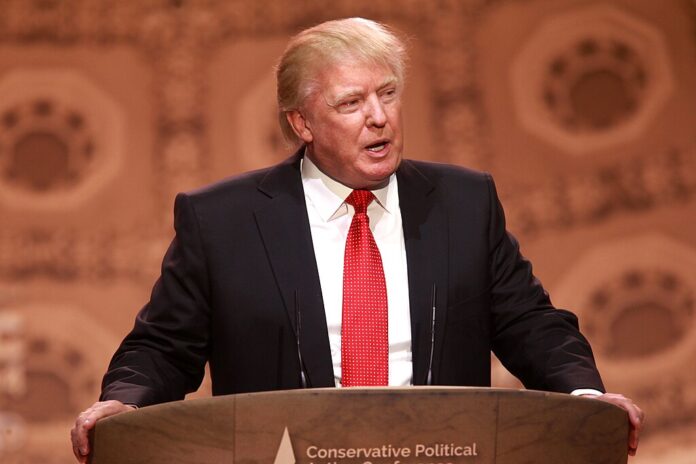The hardline immigration adviser is set to take a central role in Trump’s administration, continuing his push for stricter immigration policies
President-elect Donald Trump has selected Stephen Miller, a staunch immigration hardliner, to serve as his Deputy Chief of Staff for Policy, a move that solidifies Miller’s prominent role in shaping the administration’s approach to immigration and other key policy areas.
Miller, 39, is a longtime Trump ally and a powerful figure in the president-elect’s inner circle. His appointment underscores Trump’s continued commitment to his controversial stance on immigration. Throughout his career, Miller has been one of the most vocal and influential advocates for reducing illegal immigration, and his new role places him at the heart of Trump’s plans to overhaul the U.S. immigration system.
During Trump’s election campaign, the president-elect made it clear that one of his top priorities upon taking office would be to enforce “mass deportations” of undocumented immigrants. Miller’s appointment signals that the Trump administration will take a hardline approach on immigration, including pursuing aggressive actions against those living in the U.S. illegally.
Embed from Getty ImagesMiller’s influence within Trump’s first term in office was profound. A junior Senate staffer who quickly rose through the ranks of the Republican Party, he played a key role in crafting some of Trump’s most polarising speeches and policies. Notably, Miller was credited with writing Trump’s 2017 inaugural address, in which the then-president described a bleak vision of “American carnage.” Miller also helped draft the controversial travel ban on citizens from Muslim-majority countries and was instrumental in the policy of separating migrant children from their parents at the U.S.-Mexico border, a practice that attracted widespread condemnation.
Despite Trump’s first term ending in 2020, Miller has continued to champion stringent immigration policies. After leaving the White House, he became president of America First Legal, a conservative legal group, where he continued to advocate for the deportation of illegal immigrants and other hardline measures. Miller’s influence has been particularly evident in recent legal victories, such as his group celebrating a Texas federal court’s decision to block the Biden administration’s effort to grant legal status to thousands of undocumented spouses of U.S. citizens.
Miller’s views on immigration were once again voiced during a Trump campaign rally in New York, where he declared that America was “for Americans and Americans only.” This rhetoric has remained consistent throughout his career, reinforcing his image as one of the most hardline figures on the immigration issue.
In addition to Miller’s appointment, Trump made several other key announcements this week that suggest his administration will pursue a sharply conservative agenda. Former Republican congressman Lee Zeldin has been tapped to lead the Environmental Protection Agency (EPA), marking a significant shift away from the Biden administration’s climate policies. Zeldin’s appointment signals Trump’s commitment to rolling back environmental regulations, which he claims will unleash the potential of American businesses while ensuring the U.S. maintains the “cleanest air and water on the planet.”
These appointments come on the heels of another key decision by Trump, who named former Immigration and Customs Enforcement (ICE) director Tom Homan as a so-called “border czar” to oversee efforts to curb illegal immigration across the U.S.-Mexico border. Homan, who served in the Trump administration’s first term, is expected to play a central role in implementing the administration’s deportation strategy and securing U.S. borders.
Trump’s team continues to take shape ahead of his second term in office, with Miller’s appointment underscoring the president-elect’s determination to implement the immigration policies that were central to his first campaign. As Miller prepares to take on this pivotal role, it is clear that immigration will remain one of the most contentious issues of Trump’s second presidency.
